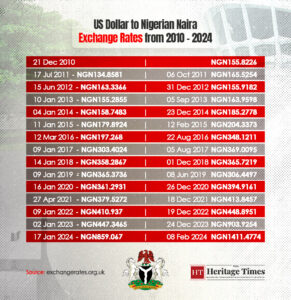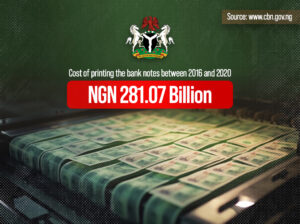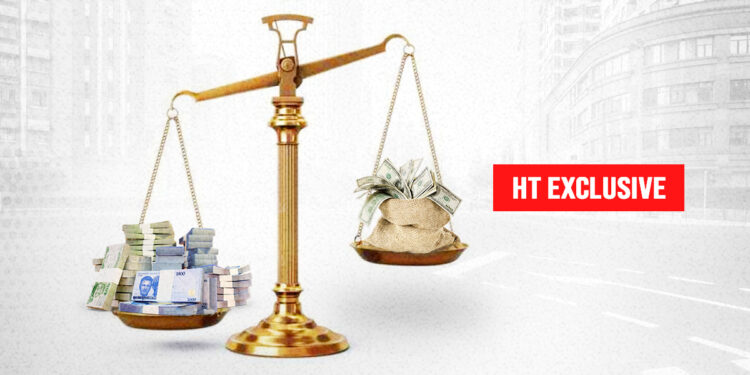By Emmanuel Nduka
As at Thursday, February 8, 2024, Nigeria’s official currency – Naira, crashed against the US Dollar to N1,479.47/$1 at official rate. Against the British Pound, the Naira slumped to N1,824.82/£1, while against the Euro, it sold at N1,556.62/€1. The rippling effect of this and the earlier removal of Petroleum Subsidy by the Nigerian Government is an ever-rising cost of living for ordinary citizens.
When Olayemi Cardoso, Governor of the Central Bank of Nigeria (CBN) along with other members of Nigeria’s economic team appeared before the Senate Committees on Finance, Appropriations, Banking, Insurance, and Other Financial Institutions on Friday, one lawmaker expressed worry as to why foreign expatriates in Nigeria are paid in Dollars, and not in the local currency as practiced “in the UK” and other climes. Senator Ned Nwoko, lawmaker representing Aniocha/Oshimili Federal Constituency of Delta State made the observation.

Without mincing words, another lawmaker from northern Nigeria in his own vent, bluntly told the economic team which also had the Finance Minister Wale Edun, that many of them (politicians) are contributing to dragging the Naira down by giving and taking bribes in Dollars. “What are we doing about the criminalisation of the Dollar because everyone is involved?! Nobody takes or gives bribes, but in dollars!” Senator Abdul Ningi of Bauchi Central exclaimed. As he spoke, background murmuring was heard urging the senator to stop talking, as if he was either speaking the truth or they were all guilty as observed.
Rising Appetite For Dollar
Responding to the lawmakers, the CBN Chief advised Nigerians to reduce their appetite for Dollar notes. This was as he also confirmed that the apex bank will no longer give Ways and Means to the Nigerian Government until the previous loans are repaid. Cardoso also advised that if the Nigerian Government improves the quality of its local educational and medical sectors, Nigerians will be dissuaded from spending huge forex abroad for same services. “The total quantum for education and medical is more than our external reserves. If we can up our game on education, and medicals, there won’t be the need for our people to go abroad,” he said.
READ ALSO: JUST IN: Putin Wins Russian Presidential Poll By Over 87%
Illegal Burden Of Printing For Ways And Means
In providing short-term financing to cover government’s budget shortfalls, the CBN exhausted N281.07 billion to print Naira notes between 2016 and 2020. In 2020 alone, the apex bank spent N58.618 billion to print N2.518 billion Naira notes, valued at N1.063 trillion. In the same year, a total of $1.830 billion was procured, the CBN’s 2020 Currency Report posted on its website indicated.

Analysts are now worried that the situation adds more pressure on the nation’s economy which is already grappling with high fiscal deficit, debt crisis, revenue crisis and high cost of living.
Prof. Charles Soludo, a former CBN Governor and now Governor of Anambra State in Southeast Nigeria, chided monetary authorities that there is an “explicit clause” in the 2007 Central Bank Act that prevents the CBN from “lending recklessly” to the Nigerian Government of “not more than 5% of the previous year’s actual revenue” in Ways and Means advances. He added that in situations where the government fails to “retire” such advances in the year that it was granted, the provisions of the 2007 Central Bank Act forbids the CBN from further issuance of Ways and Means.
While lamenting that this has not always been adhered to, he recalled that during his tenure as head of the CBN, he insisted “that we remain within the ambits of the law”. “But we sat there, all of us Nigerians we are all guilty of this. We all sat, saw the Central Bank illegally violating that act year-on-year and kept printing money literally because when you advance money that is backed by nothing, just credit the Federal Government with trillions, and it kept going on that way”.
IMTOs To Transact In Naira Only
In line with the recent directive by the CBN restricting the operations of International Money Transfer Operators (IMTOs) to only inbound transfers, IMTOs have decided to halt Dollar transfers to Nigerians, stating that they will now only pay in Naira henceforth.
Heritage Times HT recalls that CBN’s published document addressed to IMTOs on January 31, ordered the operators not to facilitate money transfers from Nigeria to other countries, describing the directive as a move to “liberalise the foreign exchange market and ensure transparency”.
Under the revised guidelines, IMTOs are now limited to inbound money transfer services alone, and are only able to provide money transfer or remittance services from a foreign country into Nigeria.
IMTOs have been asked to quote exchange rates for Naira payout to beneficiaries based on the prevailing market rates at the country’s official foreign exchange market.



































